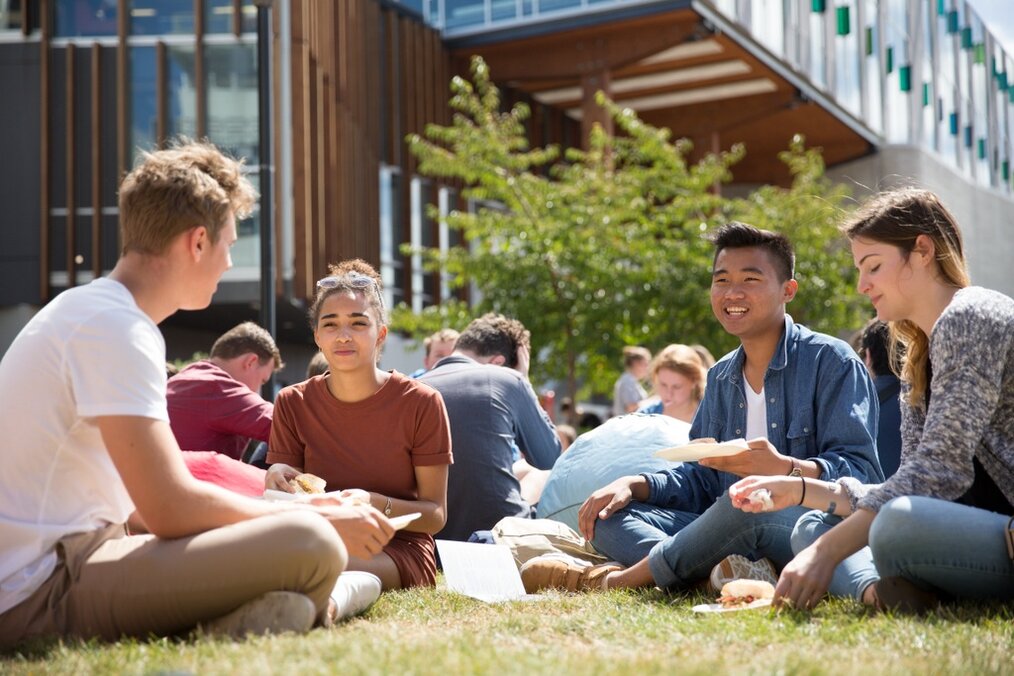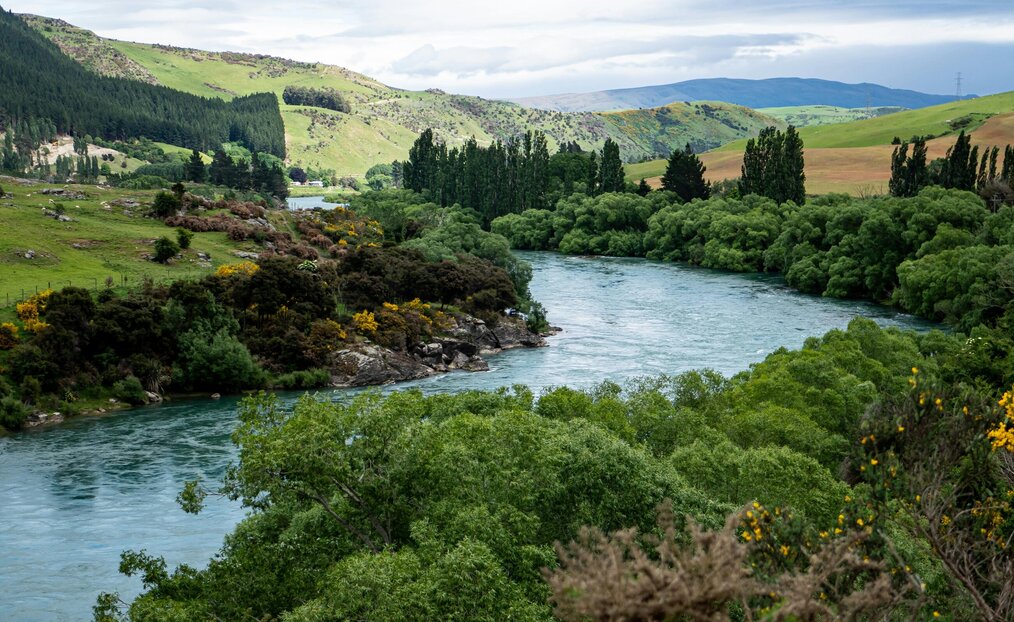10 Reasons why New Zealand is a Must-Visit Study Abroad Destination for BIPOC Students
From unique Māori education in schools to the country’s highly-ranked universities, here are 10 reasons why New Zealand is a must-visit study abroad destination for BIPOC students.

New Zealand’s culture is rich in Māori traditions, stories, and legends, as well as welcoming people and stunning, picturesque sights. Students from around the world and of all different backgrounds are drawn to studying abroad in the ‘The Land of the Long White Cloud’ for many different reasons.
From unique Māori education in schools to the country’s highly-ranked universities, we’ll walk through the 10 reasons why New Zealand is a must-visit study abroad destination for BIPOC (Black, Indigenous, and People of Color) students.
1. Māori culture and history is an integral part of life in New Zealand
New Zealand, also known as ‘Aotearoa’ or ‘The Land of the Long White Cloud’, was discovered by the Māori, the indigenous people of New Zealand. The Treaty of Waitangi (Te Tiriti o Waitangi) was created between the British and Māori, as New Zealand’s founding document, which was to preserve Māori culture, customs, values, and language, and ensures the rights of both Māori and non-Māori people are protected. Aotearoa New Zealand's bi-cultural history has been a driver for the country and society (in both positive and negative ways), even to this day!
While studying in New Zealand, you’ll also see how Māori culture is celebrated in various forms of art and media throughout New Zealand, such as dances, cultural festivals, traditional wood carvings, and more.
Devin, study abroad alum, shared how his interest in Māori culture initially drew him into studying abroad in New Zealand.
"Most of my classmates at the time wanted to go to Europe... I wanted something different for myself. We did a little bit of research on Maori culture and after seeing a haka for the first time and watching a video of the AllBlacks [rugby team], I was pulled in."
2. New Zealand’s curriculum in schools includes the incorporation of Māori culture, history, and voices

The Treaty of Waitangi influenced life in New Zealand in many ways, including the education system. Aimed to foster cultural understanding, Māori culture and history are integrated into New Zealand education, giving international students the unique opportunity to learn about the history and stories of the indigenous people of New Zealand.
There are also three official languages of New Zealand: English, Te Reo Māori (the Māori language) and New Zealand Sign Language. Some schools in New Zealand offer bilingual courses, taught in both English and Te Reo Māori.
Getting to learn more about the Māori culture, traditions, and history (both in the classroom and outside!) is a big reason why many students choose New Zealand as their study abroad destination. Angel, a Native American student, shared how her interest in "Indigenous to Indigenous transfer of knowledge" inspired her to study abroad.
"I wanted classes that would fit into the requirements of my degree AND I wanted some classes based on an Indigenous perspective, or subject. The idea of going to New Zealand and being among Indigenous people that had no relation to me was intriguing. I wanted to see what I might learn from a peoples I literally knew NOTHING about."
Starting in 2023, it was also required that curriculum in all schools in New Zealand must teach about the country’s history, including how the Māori are the foundational history of New Zealand and dive into topics of colonization, uses of power, and the different ethnic, cultural, and religious groups that comprise New Zealand.
3. New Zealand is a diverse country with rich bi-cultural heritage
Studying in New Zealand can give you the opportunity to learn from and meet people of all different ethnicities and cultures. Many people from Europe, Asia, the Pacific Islands, the Middle East, and other regions have immigrated to New Zealand.
While the European and Pakeha population is the largest ethnic group in New Zealand, there is a growing Asian community and large Pacific Islander communities, many of whom have immigrated from Samoa, Tonga, Fiji, and the Cook Islands.
"As a Chinese-American, I bonded with people in my dorms that were from China and Hong Kong. Try not to solely stick to “what’s comfortable” – for example if you are an American, do not only hang out with Americans. It takes you away from experiencing local cultures."
4. New Zealand is known for its hospitality and friendly people

‘Manaakitanga’ is a Māori value, which expresses respect and hospitality for the community and visitors. New Zealand is often praised for being a country that values kindness, tolerance, and friendship, making it a welcoming place for students of all backgrounds.
“Between the church I attended and a few friends I made from a basketball league I participated in, I really started to make a home out of New Zealand. Even now, it’s crazy to think it was only 4.5 months. The people I met were so open and didn’t hesitate to let me in and just experience life with them. Even now 4 years later, I still talk to a few of them.”
5. New Zealand offers high quality and affordable education
All 8 of New Zealand’s universities are ranked in the top 3% of the QS World Rankings, which scores universities based on important factors such as academic reputation, student employability, international research network, and more.
As an international student in New Zealand, you can attend globally recognized universities like the University of Auckland, the University of Otago, and the University of Canterbury.
Tuition fees in New Zealand are also cheaper than prices back in the US. The average undergraduate (bachelor) degree in New Zealand costs between NZ $22,000 to NZ $30,000 a year, which converts to roughly $13,000 USD to $17,000 USD.
6. New Zealand was the first country to develop an international student wellbeing strategy
The International Student Wellbeing Strategy was created to help remove common barriers faced by international students.
Established in 2017, New Zealand was the first country to develop a strategy of this kind, designed to maintain New Zealand’s reputation as a safe and welcoming study abroad destination for international students, and create an inclusive and accessible learning environment. It focuses on four key pillars: student economic wellbeing, education, health and wellbeing, and inclusion.
Providing international students with assistance for meeting basic needs, like resources for budget-friendly food and accommodation, tips for staying safe, and access to health services and counseling are a few of the practices schools must follow under this strategy.
"[My host university] had meetings specific for international students. I went to a few and that's how I made a lot of my friends. We would have Kai (food in Māori) and talk to one another."
As a result of this strategy, the Caring Clinic, a health clinic designed for international students, was opened in Central Auckland. This specific clinic focuses on providing international students with culturally appropriate health care services. Their doctors speak Cantonese, Mandarin, and English, and many services can be done over Skype.
7. New Zealand is ranked 4th most peaceful country in the world

Ranked the 4th most peaceful country in the world with a 2023 Global Peace Index score of 1.3, New Zealand is highly regarded for its safety, security, political stability, and low crime rates.
Geographically, New Zealand’s borders are naturally protected and isolated from neighboring countries. New Zealand is also considered environmentally safe, as the government implemented policies focused on conservation and sustainability, and is a leader in using renewable energies. Around 40% of New Zealand’s total primary energy comes from renewable energy sources.
While petty crime and theft can still happen to visitors in New Zealand, the crime rate is lower compared to other destinations. Gun violence is especially low, since the country established tighter gun laws following two consecutive mass shootings in Christchurch in 2019.
"The idea of leaving home was frightening. Especially as an African American man in a world divided from “Black/Blue Lives Matter” and the shooting at Christchurch that took place only a few weeks before we were supposed to arrive. This, even to this day, was the biggest yet most rewarding leap of faith I can say I’ve done in my life… and I wouldn’t change it for a second."
8. New Zealand has a welcoming campus life

Student life in New Zealand is packed with friendly people, adventure, and enriching activities to do on and off campus.
As an international student, there are opportunities to play sports on campus (Kiwis love rugby, cricket, netball, and more!), make new friends by joining social clubs and community-based organizations, and attend residential events to meet other people living on campus.
Outside of campus, international students should take advantage of day trips and enjoy the goregous sight of New Zealand. Many schools can also help arrange trips for students such as visiting local museums and attending sports or entertainment events.
“There are many clubs where many people can embrace and share identities with other students. That is the time people are most willing to make friends and connections. If your school or dorm is encouraging [these] events, please go to as many as you can.”
9. You can work while you study

While studying abroad in New Zealand on a student visa, you can work up to 20 hours a week during the academic term. Working as a student can be a great way to gain professional experience and expand your global network.
If you’re looking for internship opportunities, some popular industries in New Zealand are adventure tourism, environmental science, engineering, and architecture, just to name a few!
10. New Zealand is LGBTQIA+ friendly
New Zealand has a reputation of being a socially progressive country that celebrates belonging. The country legalized same sex marriage in 2013, becoming the first country in the Asia-Pacific region to do so.
There are many LGBTQIA+ communities in major cities like Auckland and Wellington, which also host many queer events like Auckland Pride Festival, New Zealand’s largest annual LGBTQIA+ pride parade and festival.
It’s still important to keep in mind that while same sex marriage is legal, attitudes may vary in different regions of New Zealand. In general, the country has established policies to create a welcoming environment for LGBTQIA+ individuals.
Read more: 7 Tips for Picking the Best LGBTQIA+ Friendly Study Abroad Program
Take the leap and study abroad in New Zealand!
Studying abroad in New Zealand is a once-in-a-lifetime experience. You’ll have the opportunity to learn about New Zealand’s Māori culture and values, attend internationally-recognized academic institutions, and be a part of a friendly community that celebrates belonging and people of all different backgrounds.
Interested in learning more about studying abroad in New Zealand as a BIPOC student? Explore our helpful BIPOC Guide to Studying in New Zealand!
"It was daunting knowing there weren’t videos or vlogs of other African Americans who came to New Zealand. I remember the struggle of not being able to find a barber that I could trust to cut my hair. Some things in New Zealand took a bit longer for me to adjust to, but [what] made it worthwhile was the simple aspect of coming out of my shell, and exploring the world outside of the US. Once I allowed myself to embrace the newness of everything around me, the fears left and the lifetime memories began."
